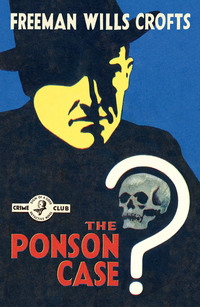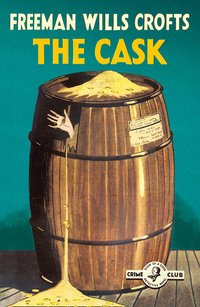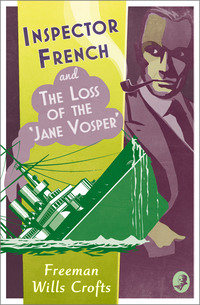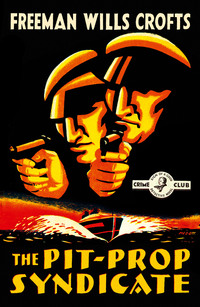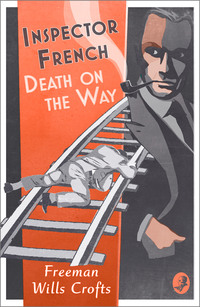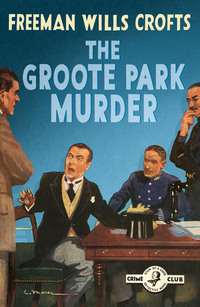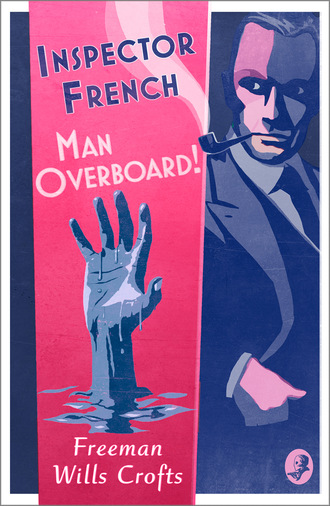
‘We’d love some tea,’ Pam answered, ‘but I’m afraid we can’t stop to play. We really just dropped in for a minute to ask Cousin George a question. Some technical thing Jack’s interested in.’
‘Oh, rot. What’s the hurry? Dad’s in his room. Go and ask your question and then come back and have tea and a game.’
With the first part of the programme Pam was in full agreement. She murmured a reply and then moved on towards the library.
George Whiteside was seated in a deep armchair before the fire with a technical shipping journal open on his knees. Though retired, he liked to keep himself up to date in his former profession. He was a long-faced old man with a spikey nose and a clever, whimsical mouth. He loved a joke and the last word in an argument, and for relaxation read three detective novels a week. He greeted Pam and Jack jovially, but pointed out that they had come to the wrong room, as he didn’t suppose it was to see him that they were there.
‘Oh, but that’s just where you’re wrong, Cousin George,’ Pam retorted. ‘It’s you and nobody else we came down to see.’
He pretended to be overwhelmed by the honour, adding darkly that he expected there was a reason.
‘Of course there’s a reason. Jack’s legal mind, you know. You won’t catch him doing things from impulse.’
For a few minutes they sparred amicably in accordance with the old man’s mood, then Pam came to business.
‘We’ve got rather an interesting thing to tell you,’ she began with guile. ‘It interested us, who are not scientific, but it’ll simply thrill you. The very latest and most wonderful discovery, and we know the man who made it.’
Whiteside allowed himself a little sceptical chaff, but Pam could see he was interested, and when she went on to say that she and Jack had been sworn to silence, and that he must pass his word before she could go on, she saw that she had him properly hooked.
‘If you’re sworn to silence, why are you telling me?’ he asked.
‘Because we’re going to make you an offer. We’re going to let you in on it—if you want to come, of course—and, of course, on terms. You’ll find it the most fascinating thing you ever took up—far more interesting than that old stuff.’ She indicated the shipping journal with a disparaging gesture.
The old man chuckled. He liked Pam and was pleased to have her come and talk to him. ‘Ah,’ he said, ‘terms! What a weight of meaning there is in the word! You remind me of poor old Magee. You could see the point of his funny stories about an hour before he got there himself. And what is it I’m to have the privilege of paying for?’
‘You won’t get anything at all if you don’t treat it more seriously,’ Pam said severely. ‘I can tell you you’ve no idea how important this is.’
‘Absolutely correct. How did you know?’
‘I’m afraid he’s in an unpleasant frame of mind. Come, Jack, we won’t waste our time on him. We’ll go elsewhere with our offer.’
‘Not if I know you,’ Whiteside shrugged. ‘Come on,’ he added, resigned, ‘let’s hear the worst.’
Pam grew serious. ‘Really, Cousin George, it’s the most wonderful thing. There’s simply no limit to the possibilities. There may be a dozen fortunes in it, besides the extraordinary benefit to the world. I just don’t know how to begin to tell you.’
‘Perhaps I can help you,’ the old man jeered. ‘What was the first you heard of it? Begin with that.’
‘It was through a man called M‘Morris, who lives at Hillsborough, that we heard of it. He met Jack,’ and Pam told of M‘Morris’s tentative inquiry and invitation to lunch, the meeting with Ferris, the story of Ferris’s discovery, and finally the suggestion that Whiteside might care to finance the remainder of the research.
The old man listened with an interest which grew keener as the story progressed. When Pam had finished he didn’t speak for some moments, evidently thinking over what he had heard.
‘Either of you know anything about these two fellows?’ he asked at last.
‘M‘Morris and his people have been living at Hillsborough all the time we’ve been there,’ answered Pam. ‘I’ve met him at games and so on, but I don’t know very much about him, really. Ferris I never saw before.’
‘M‘Morris has been there for ages,’ Jack added. ‘So far as I know, he’s all right.’
‘I note your overwhelming enthusiasm. Well, I’ll tell you what I’ll do. I’ll go in to these fellows’ room where they do their experiments, and they can show me the petrol changing. If it really does what they say, I’ll finance them. What could be fairer than that?’
‘Nothing, Cousin George. You are a dear.’ She got up and impulsively brushed his cheek with her lips. ‘When will you come?’
‘Practical beneath the sentiment,’ he informed a non-existent audience, though obviously delighted with his payment. ‘I’ll go now—at least after tea. Is that soon enough?’
‘For that you’ll get another kiss. Will you come with us?’
‘No, there’s a contributory negligence clause in my life insurance. I’ll have M‘Dowell and the Daimler. I suppose I can get back in time for dinner?’
They reassured him—on somewhat inadequate grounds, as they had no idea how long a demonstration might take. But Pam believed in striking before the iron began to cool.
While old Mr Whiteside was getting ready, Jack passed on the splendid news and obtained the address of the ‘room’. Ferris and M‘Morris would return there immediately and prepare for the experiment.
An hour later the inhabitants of Warren Street, a rather sordid backwater running from the Lisburn Road down towards the Great Northern Railway, were thrilled by the unwonted spectacle of the arrival at No. 46 of two large motors, one a scintillating Daimler with a real chauffeur in livery. Such an event had never before been known in the street, and the passing of the travellers from the vehicles to the house was watched from the pavement by an admiring circle of infants and from adjoining windows by their seniors.
Ferris was a good host and did the honours creditably. He was respectful to Whiteside without obsequiousness, and his politeness to Pam was tempered with just the right amount of familiarity due to a prospective partner. M‘Morris silently seconded him.
The room proved to be a large attic at the back of the house, which was inhabited, so Ferris explained, by a railway guard. It was so full of chemical and electrical apparatus that there was little space for anything else, but by dint of piling a lot of their stuff into a corner, the two men had made room for three chairs, which they had borrowed from the guard’s wife. The visitors sat down.
‘What we have to show you, sir,’ went on Ferris, ‘can be done very easily, but you’ll forgive us if at this stage we don’t explain the whole of our method. If we are lucky enough to have you join us, we can then give full explanations. At present we want simply to show you what we can do.’
Whiteside nodded, and the others could see he approved the caution and the direct way in which it was admitted.
‘We’re also wanting to give you every safeguard against possible misunderstanding or’—Ferris smiled twistedly—‘fraud on our part. I hope we’re going to ask you to put money into this thing, so it’s only your due. No feeling, of course; it’s a matter of business. We propose, therefore, to ask you to supply the sample of petrol that we use. Here is a glass syringe, which you can see is empty. Maybe you’d ask your chauffeur to fill it from the tank of your car.’
This was quickly arranged, and when Whiteside had examined the filled syringe, he passed it on to Ferris.
‘I now pour the petrol into this graduated dish,’ Ferris explained, suiting the action to the word. ‘You’ll see that it’s standing on one pan of a scales. I now get the scales balancing, see.’ He manipulated. ‘Now, I want you to please note the volume of the petrol; you can read it off on the scale.’ He paused. ‘Got a note of it? Good. Then I put into it what I call my plus converter, that is the converter that changes from ordinary or active petrol to inert. This is it.’
He took down from a shelf an apparatus of horseshoe shape from the curved portion of which an electric flex stretched away to a wooden box on a side table. A second flex connected the box with a wall plug. At the end of each leg of the horse shoe was a small square metal box. There was a space of about quarter of an inch between the boxes.
‘In here,’ Ferris demonstrated, laying his hand on the large wooden box, ‘is a transformer which gives me the current I require. This current is carried down to the converter’—he touched the U-shaped apparatus—‘and there I produce a certain radiation. This radiation passes between the poles,’ he pointed to the metal boxes.
‘I may tell you that there’s more than the radiation in these poles. However, we needn’t bother about that now. For the present it’s enough that you should see what happens. Now please watch.’
He lowered the plus converter into the dish of petrol, supporting it by a lazytongs bracket, so that it did not touch the glass, but was suspended in the liquid.
‘That’s put the scales off, but never mind. You’ll see it’s all right later. I now switch on the current and see what happens.’
He snapped down the switch at the plug. Immediately a few faint bubbles appeared between the poles of the apparatus. But it was not upon them that the watchers’ gaze rested. The petrol was shrinking! They watched it go down the graduated scale on the side of the dish until it occupied only about two-thirds its previous volume!
Ferris switched off the current, then raised his plus converter from the liquid. ‘Steady,’ he said. ‘Watch the scales.’
On the removal of the converter the pans once again exactly balanced. Though the petrol had shrunk, its weight, as Ferris had said, remained constant.
Ferris then picked up the dish and handed it to Whiteside, asking him to smell it. The old man did so.
‘Bless my soul!’ he exclaimed. ‘It has no smell!’
‘No smell, no taste, no chemical power, no nothing!’ Ferris declared in triumph. ‘Look here!’
He lit a match and held the flame to the liquid. Nothing happened. Then he put the match into the liquid. It was immediately extinguished.
‘You could pour that form of petrol over red-hot metal, as M‘Morris and I have done, and nothing happens. It doesn’t even vaporise. With it in one’s tank there’d be no danger of explosion or fire if one’s car or one’s plane crashed. Would you like us to do the hot-iron test?’
‘No,’ Whiteside returned. ‘I’ll accept that. Carry on as you’re going.’
‘That’s the first thing I have to show you,’ Ferris went on. ‘The second is to turn that lot of inert petrol back to the active stuff. The process is somewhat the same, but here heat is wanted, also. You may have noticed that that last conversion gave out heat? The dish was slightly warm after it.’
‘Yes, I noticed that. And now you have to put back that heat as well as whatever else you do?’
‘Yes, sir, that’s right.’
As he spoke Ferris removed the U-shaped apparatus from the liquid and disconnected it from the wooden box. Then he took another horseshoe-shaped affair, not unlike the first, and connected it in its place, dropping the ends into the liquid as before. Beneath the pan of the scales he put a Bunsen burner, and in the liquid a thermometer.
‘We’ll have only to wait for a slight heat,’ he explained, ‘and there’s a tiny loss from evaporation, which I’m ignoring. While we’re waiting till it’s warm enough I’d like to tell you just what still remains undone and what we should like to do about further research.’
He went on to point out what he had already told Pam and Jack—that the discovery was useless unless they could convert only a limited quantity of any given volume, that he believed this would be found possible, and that he wanted to concentrate on the problem. By the time the point had been discussed he announced that the petrol was warm enough for returning it to its original form.
Having put out the Bunsen, Ferris switched on the current. Immediately the liquid began to swell. It increased in volume till it reached that of the original amount, and when he removed the converter and the thermometer the scales again became balanced. Now again the liquid smelled of petrol, and when Ferris put a few drops on another dish and put a match to them, they flared up as petrol does.
The three watchers were convinced—utterly and absolutely convinced. Indeed, of all those present, Mr Whiteside had become the most enthusiastic. ‘I’ll finance you,’ he declared warmly. ‘I don’t mind what it costs. Get ahead with it, the lot of you. If I was twenty years younger I’d help you with my own hands.’
The atmosphere grew slightly electrical. Ferris and M‘Morris seemed overwhelmed with their good fortune, while Pam felt thrills of excitement passing down her spine. Even Jack fidgeted and grinned.
‘What’s the next step?’ went on Whiteside. ‘Let’s hear you plans.’
Ferris and M‘Morris exchanged glances, then Ferris answered. ‘I’ll tell you what M‘Morris and I’d like, but of course you and the others may not agree. We’d like first to form a sort of small syndicate to develop the thing. We’d like to have proper deeds drawn up, and all sign them. We thought that we four would put in our labour and professional knowledge, and that you, sir, as you have so kindly promised, would put in the capital to keep us going during the research. For what we do in the future we thought we should all share the profits equally, but for supplying the idea, and for what M‘Morris and I have already done, we suggest that we two are entitled to an extra share each. That is, divide our profits into seven parts, give two each to M‘Morris and myself, and one each to you three.’
‘That sounds fair. I agree. What about you two?’ Whiteside looked at Pam and Jack.
‘We agree,’ Pam said promptly. ‘If anything, it’s too liberal towards Jack and me.’
‘Very well. Suppose we instruct Penrose to get the necessary documents drawn up. That’s to be his job, isn’t it?’
‘His principal job,’ Ferris amended with a grin. ‘There’s no reason why he shouldn’t help with the research when he has time.’
‘Of course he’ll help,’ Whiteside returned seriously. He was enjoying himself now, taking the lead and giving directions as he had done in the shipyard before his retirement. ‘Very well: that’s our constitution dealt with. What are your detailed proposals for carrying on the research?’
‘We’ve thought of that, too. There’s a small cottage to be had by the week near Hillsborough. If we could get that I could live in one room and the remainder could be used for the work. It would be handy for the others, who all live close by. Water is laid on, but not electricity. However, the distributing line passes the end of the lane, and a connection wouldn’t cost much. Of course, electricity is absolutely essential.’
‘Where is this cottage?’ Jack asked.
‘Near your gate. It’s the first cottage in Sloan’s Lane. That is,’ he looked at Whiteside, ‘it’s on a lane off the Lisburn Road, about a mile from Hillsborough. It’s a mile or a bit more from Miss Grey’s and about the same from M‘Morris’s.’
‘Is it a little cottage with four rooms and a porch and a holly tree just at the gate?’ put in Pam.
‘That’s the place. I’ve been over it, and I think it would do all right, and it’s not dear. In fact, it’s the only place near Hillsborough that either of us have heard of.’
Pam nodded in approval. ‘It would be convenient, because the buses pass the end of the lane a hundred yards away. And it’s very secluded and private. We could work there without being overlooked or interrupted.’
Whiteside indicated with a gesture that the point had been sufficiently discussed. ‘Well,’ he said to Jack, ‘you go and arrange its hire. Take it for six months. By that time you should know whether or not you’re going to succeed?’ He glanced at Ferris.
‘I hope we’ll succeed long before that, sir. However, nothing could be better from our point of view.’ The others nodded their approval.
‘Next item?’ Whiteside persisted.
Again Ferris and M‘Morris exchanged glances. For the first time Ferris hesitated and seemed ill at ease. ‘Well, I’m afraid there are our personal expenses—mine and M‘Morris’s,’ he said with a deprecating smile. ‘What I mean is, we have to earn a salary to live on. If we do this research we have to give up our jobs and our salaries stop. We shouldn’t want very much, but we should want something.’
Whiteside waved this point away also. ‘That’s understood,’ he declared. ‘I shall make each of you an allowance equal to your present salaries, and any extra expenses that you may incur in the research.’
‘That’s very handsome of you indeed, Mr Whiteside,’ Ferris declared, and M‘Morris murmured his agreement.
‘I think, then, that that finishes our business, and in a better way than we could have hoped. Unless any of you wish to bring up some other point.’
But this no one did, and the meeting terminated.
Jack then became immensely busy and important. He spent hours in looking up large and musty tomes in his father’s office and in discussing with Pam draft clauses in which the words ‘the said enterprise’ figured largely. But from these fragments eventually evolved a formidable document tastefully typed in quintuplicate on vellum, to which, with a little ceremony in which a bottle of champagne figured, the partners of the said enterprise affixed their various signatures.
Jack also took Wayside, the cottage in Sloan’s Lane, for a period of six months, obtaining immediate possession. Ferris and M‘Morris left their firm and brought their Warren Street plant down to Hillsborough. There work on an intensive scale was begun. Ferris and M‘Morris spent their full day and most of their spare time on the job. Pam helped nobly, putting in most of her day at the cottage, while Jack came in and did what he could in the evenings. Ferris had worked out a programme of systematic experiments, and these were carried out in regular order. Occasionally Mr Whiteside drove down to give the activities his blessing.
At first Pam found it enthralling, but as time passed and no apparent headway was made, she grew tired of it. Ferris and M‘Morris were also obviously feeling the strain. After two months they had a meeting, and decided that they were knocking themselves up. They fixed definite working hours which normally they would not exceed, and which gave time for reasonable relaxation and amusement.
After this things went better. They settled down to steady, persevering work, but dropped the killing effort to accomplish everything at once.
So passed another two months of intensive labour, but without registering the slightest advance. All still maintained a front of cheery confidence, but in Pam’s mind horrid little whispers of doubt were now beginning to arise. They had nearly worked through Ferris’s programme, and it he had made as comprehensive as he had known how. Suppose they completed it without having reached the goal at which they aimed? What would they do then? Had Ferris another string to his bow—a series of further tests as yet untouched? Or were they going to have to confess defeat?
And then one morning in the fifth month Ferris gave a cry of triumph. Pam and M‘Morris left their benches and ran across the room. Ferris’s excitement had grown so that he could scarcely speak. But a glance at his face was enough. It was clear that at last he had succeeded!
When he was able to talk coherently he explained that he had connected two vessels of inert petrol by a tube in which he had placed both his converters. He had found that switching on both produced the two petrol forms simultaneously, each in the vessel next its own converter. By this mean active petrol remained in one vessel and inert in the other, no matter what flow took place between the two.
This obviously solved the problem, as inert petrol in the tank of a car or plane could be kept inert, while that taken from the tank could be changed to active at the carburettor.
Though there was wild excitement and delight, including the drinking of another bottle of champagne with Mr Whiteside, all realised that they were as yet by no means out of the wood. The somewhat cumbersome apparatus had to be simplified and cheapened. The power required had to be reduced to what a car battery would easily supply. The plus and minus converters had to be combined in one small fitting.
However, success seemed to stimulate Ferris’s brain. His ingenuity and resource grew even more impressive. One by one the difficulties were overcome, and by the middle of August the new apparatus was complete. It had shrunk to a small brass casting housing some not too intricate mechanism, which was inserted on the feed pipe just in front of the carburettor and which was supplied with current from the batteries.
Now Ferris metaphorically sat back and wiped his brow while Jack Penrose became the star turn. Directly success seemed assured, they had begun to consider the firm to which they would offer their invention. It had been realised that patenting would give away their ideas, and that manufacture could only be by secret process. Now Jack was entrusted with the preliminary negotiations. Communications passed, with the result that the firm of Wrenn Jefferson & Co. of Bristol and Avonmouth was provisionally selected as the most suitable. These people expressed themselves as interested, and Jack and Ferris then went over for an interview. The result was that the firm agreed to send their representative, Mr Reginald Platt, to Hillsborough to witness a demonstration of the new process. If he reported favourably the managing director and some of his staff would then come over, and if things still went well, a firm agreement to work the scheme under licence would be entered into.
It was to meet this Mr Platt that Jack and Pam were now driving to the Grand Central Hotel in Belfast.
4
As Pamela Grey Saw It
Belfast, more perhaps than most towns, has a well defined city centre. It is familiarly known as ‘The Junction’, and there its principal streets meet—Castle Street, Castle Place, Royal Avenue and Donegal Place, radiating respectively north, south, east and west. It was to The Junction that Jack headed, for the hotel was situated in Royal Avenue close by. He pulled in to the pavement opposite the door and asked Pam if she was coming in with him.
‘No,’ she said, ‘I’ll wait for you.’
Jack disappeared, and she got out of her seat in the front of the car and moved in behind, so as to let their visitor sit with Jack on the return journey. She felt thrilled and excited, though she told herself that this was absurd. Mr Platt was in all probability a perfectly ordinary individual. Except on grounds of common politeness, it didn’t really matter whether or not he was pleased with his reception.
And yet did it not? He certainly had immense power. On his opinion, approving or condemning, might depend their whole future. If he approved, a sale of the process would almost certainly follow. If he condemned, no deal with Wrenn Jefferson would take place. Of course, in that case they would no doubt do business with some other firm. But even so, it would be a dreadful disappointment if this first deal were to fall through. Pam felt that she had been wrong. It was urgently necessary that this autocrat’s first impression of themselves and the process should be favourable. She prepared herself, therefore, to be as nice to Platt as it was in her to be.
But Platt, when a moment later he appeared with Jack, did not look so very prepossessing. He was youngish, not more than twenty-seven or eight, short and rather stout, with a pasty complexion and a pair of sharp little eyes set close together, which did not squarely meet Pam’s. His expression was rather unpleasant, and the hand he offered was soft and flabby. Pam instinctively resented the glance he gave her, and she instantly had a revulsion of feeling, a sense of disappointment, as if she saw that a pleasure to which she had been looking forward would be denied her. But she greeted him cordially, and in a moment the men got in and they started on their homeward journey.




